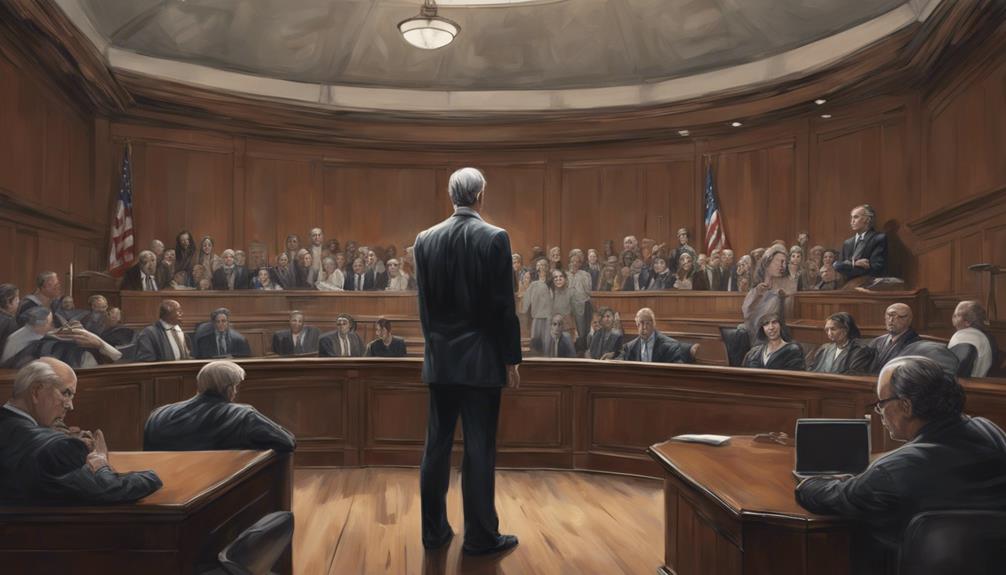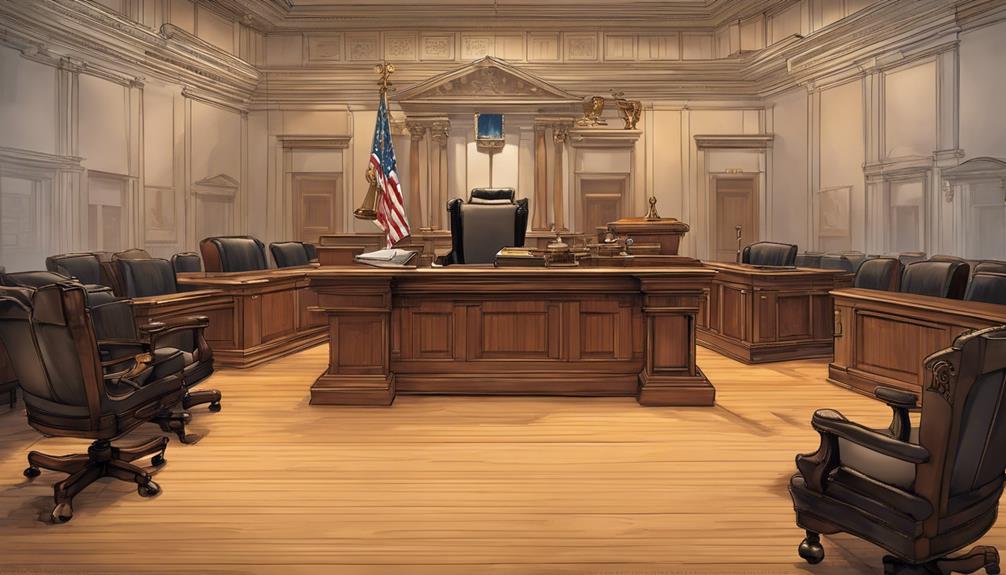When individuals are considering whether to testify, they should take into account safety concerns such as possible retaliation and inherent risks. Factors such as fear of harm and lack of trust in the legal system can influence this decision. Emotional aspects, such as reliving trauma, also come into play. Witness protection programs provide assistance and options for remaining anonymous. It is crucial to understand one’s rights regarding self-incrimination. Safety and mental health should be top priorities in the legal proceedings. Exploring all possible options can assist individuals in making well-informed decisions about testifying.
Key Takeaways
- Consider safety concerns, fear of retaliation, and potential harm before testifying.
- Understand legal risks and consequences, including self-incrimination and penalties.
- Evaluate witness protection options like relocation, anonymity, and counseling services.
- Seek legal counsel to assess protection measures and anonymity orders.
- Video conference testimony can reduce exposure to threats and safety risks.
Fear of Retaliation
Witnesses often hesitate to testify out of fear of retaliation from the accused or their associates. This fear isn't unfounded, as retaliation can take various forms, ranging from intimidation tactics to physical harm. In some cases, witnesses prioritize their safety over cooperating with the legal system, resulting in a reluctance to come forward.
Witness protection programs and legal measures have been established to address and prevent such retaliation, aiming to create a safer environment for those testifying. However, the fear of retaliation remains a significant factor that can impact a witness's willingness to participate in legal proceedings.
To address this issue, providing support and security measures is paramount in alleviating witnesses' fears and encouraging them to step forward. By ensuring the safety of witnesses and implementing measures to protect them from potential retaliation, the legal system can enhance witness cooperation and strengthen the pursuit of justice.
Lack of Trust in Legal System
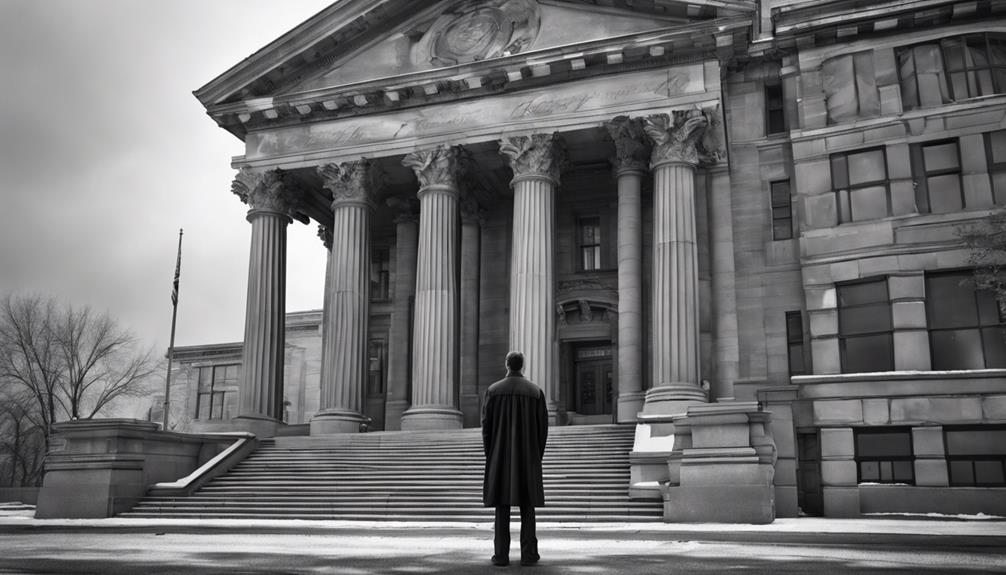
Distrust in the legal system can arise from past negative encounters or perceptions of bias. Factors such as racism, corruption, or inadequate legal representation can contribute to this lack of trust.
Witness reluctance to testify may stem from doubts about receiving fair treatment or justice.
Legal System Distrust
Experiencing unfair treatment, bias, or lack of transparency in the legal system can lead individuals to harbor doubts and skepticism towards its processes and outcomes. This lack of trust may stem from negative encounters with law enforcement, courts, or legal professionals, and can also be influenced by cultural or societal factors.
Additionally, the media's portrayal of legal proceedings and outcomes can shape public perception of the legal system. To address legal system distrust effectively, building trust through transparency, fairness, and accountability is vital.
Establishing clear channels of communication, ensuring equitable treatment for all individuals, and holding legal entities accountable for their actions are essential steps in restoring faith in the legal system.
Testimony Refusal Reasons
When facing the decision to testify, individuals may cite lack of trust in the legal system as a significant factor influencing their choice to refuse. This lack of trust can arise from concerns about fairness, bias, or corruption within the legal system. Negative past encounters with law enforcement or the judiciary can also play a role in eroding trust. Additionally, perceptions of systemic inequalities or injustices may further diminish confidence in the legal system. Media reports highlighting flaws or failures in the legal system can contribute to these sentiments. To rebuild trust, efforts toward transparency, accountability, and community engagement are essential.
| Lack of Trust Factors | Examples | Impact |
|---|---|---|
| Fairness concerns | Unbiased treatment | Diminished confidence |
| Negative experiences | Past encounters | Erosion of trust |
| Systemic injustices | Inequality perceptions | Reduced faith in legal system |
Ethical Obligations Conflict
Witnesses facing ethical conflicts due to a lack of trust in the legal system may confront dilemmas between their obligations to truth and concerns about the system's reliability. When grappling with such situations, individuals may experience uncertainty about how to proceed.
To navigate these challenges effectively, they can consider the following:
- Seeking guidance from legal professionals to understand the implications of their decision.
- Reflecting on the potential consequences of refusing to testify based on ethical grounds.
- Evaluating the impact of their actions on the legal proceedings and the pursuit of justice.
Personal Safety Concerns

Witnesses facing personal safety concerns must consider safety planning strategies, legal protection options, and the importance of a support network.
Safety planning can involve seeking assistance from witness protection programs or requesting anonymity orders from the court.
Having a strong support system in place can help witnesses navigate the challenges of testifying while prioritizing their safety.
Safety Planning Strategies
Personal safety concerns stemming from potential retaliation or harm can be addressed through strategic safety planning measures. When facing these risks, individuals can take the following steps:
- Change Residences: Moving to a new location can help increase physical distance from potential threats.
- Obtain Restraining Orders: Legal orders can provide a layer of protection by prohibiting contact from individuals posing a risk.
- Seek Witness Protection Programs: These programs offer thorough safety measures to safeguard individuals who testify in high-stakes cases.
Legal Protection Options
When facing potential harm or intimidation, individuals can explore various legal protection options to guarantee their safety.
Witness protection programs offer safeguards against harm, while anonymity orders protect identities in sensitive cases. Legal counsel can advise on alternatives like providing written statements or testifying via video conference.
Closed-circuit television testimony allows witnesses to testify remotely, enhancing safety. Restraining orders are effective in preventing contact or harassment of witnesses involved in legal proceedings.
These legal protection options serve to assure the security and well-being of individuals facing safety concerns. By understanding and utilizing these measures, individuals can navigate the legal system while prioritizing their personal safety.
Support Network Importance
Establishing a reliable support system is crucial for individuals managing personal safety concerns during legal proceedings. Having a supportive network can offer emotional and practical assistance, helping individuals navigate through fears and anxiety related to potential safety threats.
Here are three key benefits of a strong support system:
- Emotional and practical assistance in dealing with personal safety concerns.
- Alleviation of fears and anxiety, especially regarding potential retaliation.
- Guidance on available resources for witness protection and legal assistance in case of safety issues.
Feeling supported empowers witnesses to make informed decisions and seek help when necessary, enhancing their sense of security and confidence during legal proceedings.
Reluctance to Relive Trauma
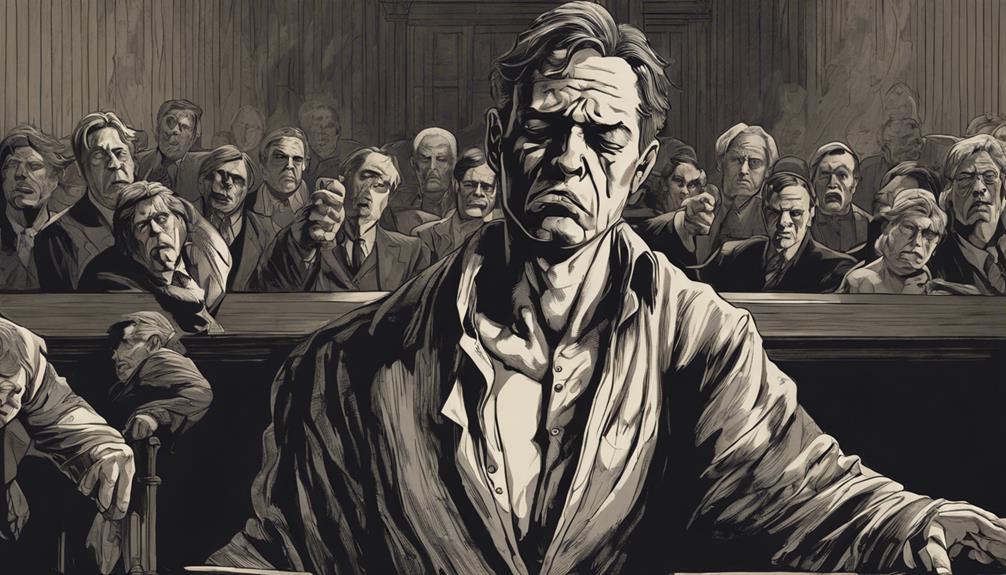
Witnesses often experience reluctance to revisit trauma due to the potential triggering of anxiety, PTSD symptoms, and emotional distress during testimony. This reluctance can be rooted in past traumatic experiences or emotional distress, leading to a fear of retraumatization and psychological harm when recounting painful memories.
The act of recalling traumatic events can evoke intense emotions, making witnesses hesitant to engage in testimony that may worsen their distress. Avoiding the reliving of trauma through testimony is a significant concern for the emotional well-being and mental health of witnesses.
However, witness support and accommodations can play an important role in alleviating the burden of reliving trauma during legal proceedings. By providing a supportive environment and necessary assistance, witnesses may find it easier to navigate the challenging process of testifying without experiencing excessive emotional turmoil.
It's essential to acknowledge and address the reluctance witnesses may feel in order to ensure a more comfortable and less distressing experience for all parties involved.
Worries About Consequences

Witnesses may have valid concerns about the consequences of testifying, including potential legal ramifications and worries about personal safety. These worries can stem from a lack of trust in the legal system and the fear of emotional distress or harm.
The impact on their life and well-being plays a significant role in their decision-making process regarding whether or not to testify.
Legal Ramifications Considered
When contemplating the legal ramifications of refusing to testify, individuals must be aware of potential contempt of court charges, fines, imprisonment, and civil penalties. This decision can have significant consequences, impacting both the individual and the legal proceedings. Here are some key points to keep in mind:
- Contempt of Court Charges: Refusing to testify can lead to being charged with contempt of court, which may result in fines or imprisonment.
- Financial Penalties: Individuals may face civil penalties for non-compliance with a subpoena or refusal to testify.
- Legal Consequences: Avoiding testimony can have a substantial impact on the outcome of a case due to the potential legal ramifications involved.
Understanding these legal risks is crucial when deciding whether to testify or not.
Personal Safety Concerns
Understanding the potential risks to personal safety is essential when considering the decision to testify in legal proceedings. Witness reluctance may arise from fears of retaliation, harm, or negative repercussions. Concerns about consequences, such as intimidation or violence, can lead individuals to refuse to testify.
Worries about future safety and well-being also play a significant role in this decision-making process. Witnesses may fear retribution for providing testimony. Addressing these personal safety concerns is vital in supporting witnesses' willingness to participate in legal proceedings.
It's important to acknowledge and mitigate these risks to safeguard the safety and protection of those involved in the legal system.
Self-Incrimination Concerns
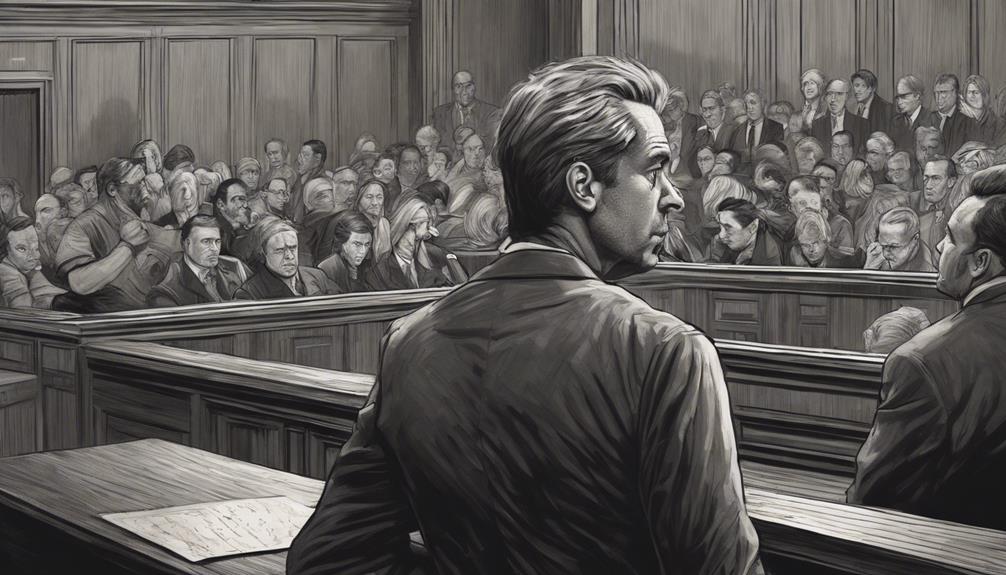
In legal proceedings, self-incrimination concerns often arise when testimony could potentially implicate the witness in a crime. When faced with self-incrimination worries, individuals should consider the following:
- Legal Protection: The right against self-incrimination allows individuals to refuse testimony that may implicate themselves in a crime, ensuring fair trial rights are upheld.
- Avoiding Legal Repercussions: Self-incrimination concerns may lead to legal repercussions for the witness, making it important to assess the potential risks before testifying.
- Fundamental Right: Asserting the right against self-incrimination is a fundamental protection in legal systems to prevent forced confessions or incriminating statements, safeguarding individuals from being compelled to provide evidence that could be used against them in criminal proceedings.
Understanding self-incrimination concerns is essential for witnesses to make informed decisions when called to testify, ensuring their rights and protection are upheld within the legal system.
Witness Protection Options
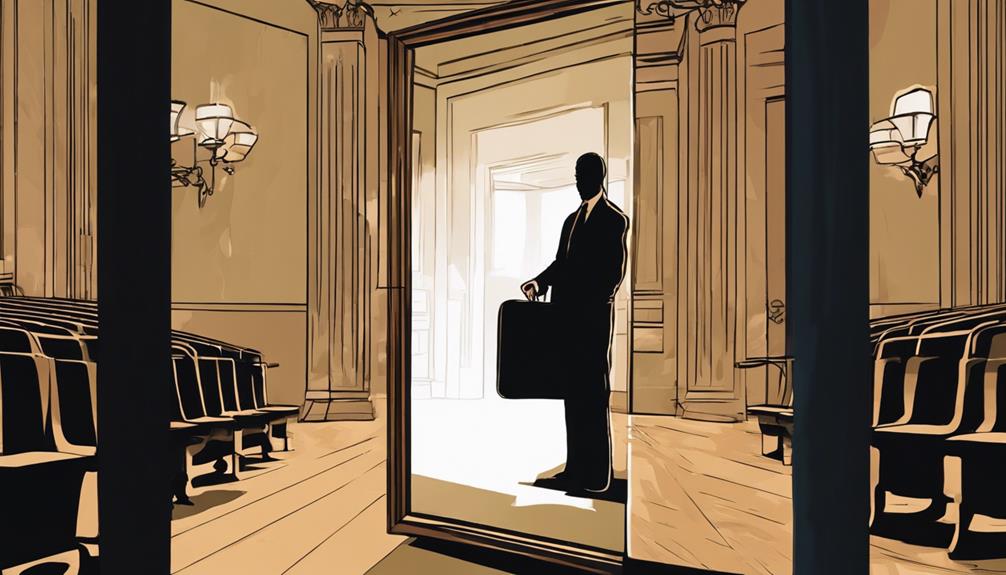
What witness protection options are available for individuals involved in legal proceedings?
Witness protection programs offer various safeguards, including relocation to undisclosed locations, name changes, and round-the-clock security details. Anonymity orders can be sought to shield witnesses' identities during trials, ensuring their safety. These programs also provide essential support such as counseling services, financial assistance, and help with housing. Legal counsel plays an important role in assisting witnesses in assessing potential risks and maneuvering through the available protection options.
Additionally, witnesses can opt to provide testimony via video conference or a written statement, reducing the risk of direct exposure to potential threats. By utilizing these protection measures, witnesses can feel more secure while fulfilling their legal obligations.
Emotional Considerations

Witnesses in legal proceedings often grapple with emotional considerations that can influence their decision on whether to testify. When deciding whether to testify, emotional factors come into play, impacting witnesses' well-being and participation in the legal process.
Some emotional considerations for refusing to testify may include:
- Fear of Retaliation: Witnesses may be afraid of retaliation or harm from the accused or their associates, leading them to refuse to testify.
- Trauma and Emotional Distress: Reliving painful events during testimony can cause witnesses to experience trauma or emotional distress, affecting their willingness to testify.
- Safety and Well-being Concerns: Concerns about personal safety and well-being can also contribute to witnesses refusing to testify in court.
It is essential to recognize and address these emotional considerations when dealing with witness testimony to make sure a fair and just legal process.
Fair Legal Process
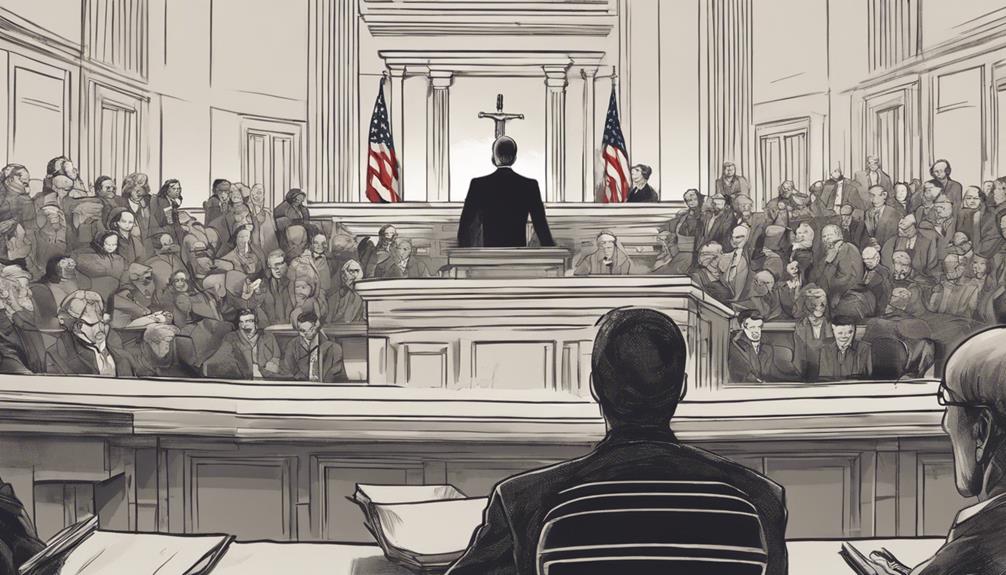
Ensuring a critical legal process is fundamental to upholding justice and safeguarding individual rights in legal proceedings. Critical legal process guarantees equal treatment for all involved, preserving rights like the right to a fair trial, privacy, and protection against self-incrimination.
By respecting witnesses' rights to refuse testimony, the legal system maintains integrity and fairness. The legal process seeks to balance interests while serving justice. In specific situations, refusing to testify can uphold principles of fairness and protect individual rights.
Importance in legal proceedings is essential for maintaining trust in the justice system and ensuring that all parties are treated justly. Upholding a critical legal process isn't only a legal requirement but also essential for the credibility and legitimacy of the outcomes.
Adhering to critical procedures ensures that justice is served and individual rights are respected throughout the legal process.
Respecting Witness Rights
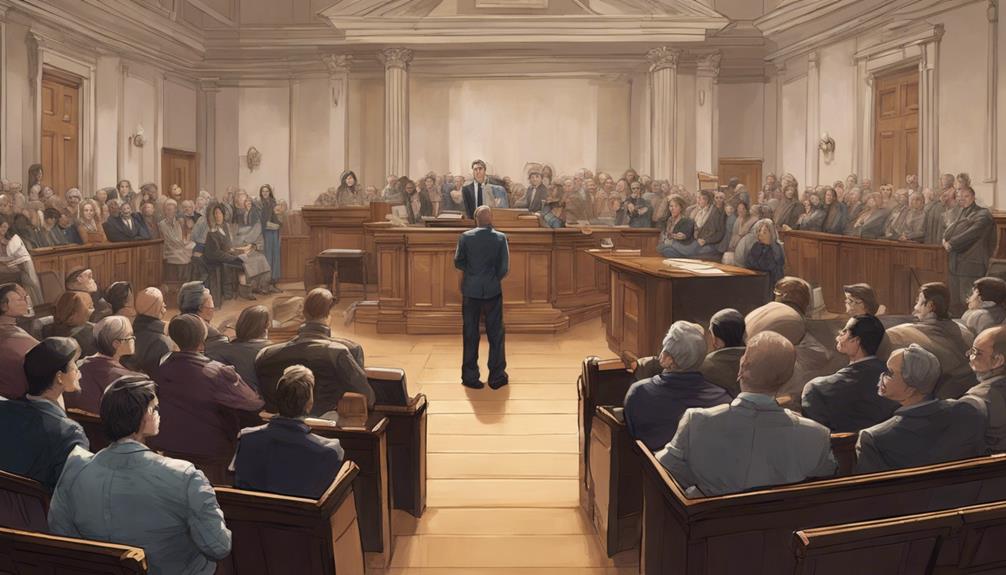
Respecting witness rights in legal proceedings involves acknowledging their entitlement to decline testimony under specific circumstances. Witnesses possess the right to refuse testimony if it risks self-incrimination or incriminating a family member. Additionally, professional confidentiality obligations provide grounds for witnesses to reject testimony in certain situations.
Witness testimonies concerning personal or private matters can also be turned down if not adequately justified. Refusal to testify may stem from concerns about privacy, potential self-incrimination, or conflicts of interest. Legal protections are in place to guarantee that witnesses can't be compelled to testify against their will, safeguarding their rights within the legal system.
Frequently Asked Questions
Can a Witness Refuse a Summons?
Yes, a witness can refuse a summons under specific circumstances. German law protects witnesses against self-incrimination and conflicts of interest. Professionals with confidentiality duties, like lawyers or religious figures, may also decline to testify.
What Does It Mean to Refuse to Testify?
Refusing to testify means choosing not to provide information in legal proceedings. It can stem from personal, factual, or legal reasons. Witnesses might refuse if their testimony incriminates themselves or family. Legal protections may safeguard refusal.
Can You Withdraw a Witness Statement Uk?
Yes, in the UK, a witness can withdraw their statement in limited circumstances, such as due to new evidence or errors. The court has discretion and may require an application explaining the reasons. Legal advice is important.
Can a Witness Refuse to Testify in India?
In India, witnesses can refuse to testify under specific circumstances permitted by law, such as self-incrimination or protecting close relatives. The legal system recognizes witness refusal based on professional confidentiality or privilege, requiring reasons for refusal.
Can Witness Testimony Affect the Outcome of a Divorce Case in Alabama?
In Alabama, witness testimony can impact the cost of Alabama divorce. Testimonies from witnesses can influence the court’s decision on alimony, child custody, and the division of assets. A credible witness can strengthen a party’s case, potentially affecting the overall outcome and the cost of Alabama divorce proceedings.
Conclusion
To sum up, determining when to refuse testifying can be a challenging decision for witnesses. Factors such as fear of retaliation, lack of trust in the legal system, and personal safety concerns can influence their choice.
It's important for witnesses to ponder their rights, emotional well-being, and the fairness of the legal process before deciding whether to testify. Ultimately, each individual must weigh the potential consequences and available protection options to make the best decision for themselves.

